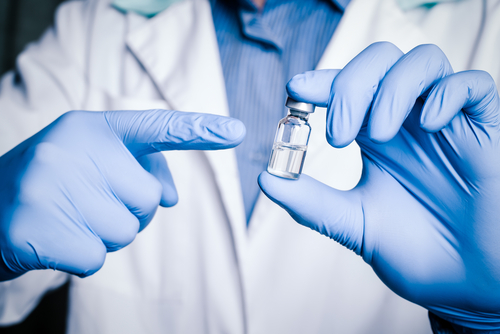Phase 2 Trial of Muscle Therapy ACE-083 for Charcot-Marie-Tooth Disease Doses 1st Patient

The first patient has been dosed in a Phase 2 clinical trial of ACE-083 as a treatment for the muscle impairment in Charcot-Marie-Tooth disease, according to the therapy’s developer, Acceleron Pharma.
Acceleron is already evaluating ACE-083 in another Phase 2 trial — this one as a treatment for facioscapulohumeral muscular dystrophy.
“People diagnosed with CMT currently have no drug therapy options to address the major consequences of their disease, such as impaired walking and falls due to progressive muscle weakness in the lower leg,” Dr. Colin Quinn, the new Phase 2 trial’s principal investigator, said in a press release. He is an assistant professor of clinical neurology at the University of Pennsylvania’s Perelman School of Medicine.
“ACE-083 has the potential to increase muscle growth and strength in the lower leg muscles we are targeting, and could improve patients’ ability to walk,” Quinn said.
The therapy inhibits agents that impair muscle growth and strength.
Acceleron is developing it for muscular dystrophies with what scientists call focal muscle loss. That kind of loss occurs in a muscle or group of muscles in a specific part of the body. Charcot-Marie-Tooth disease, named for the scientists who identified it, is an inherited disorder of the peripheral nerves (typically, those of the arms and leg) that results in smaller and weaker muscles.
A Phase 1 clinical trial (NCT02257489) showed that injecting ACE-083 into the legs of healthy volunteers increased their muscle volume. Researchers made the injections in the rectus femoris — a muscle in the upper leg — or tibialis anterior — a muscle in the lower leg that involves the ankle. The injections led to a 14.5 percent increase in muscle volume in the upper leg and an 8.9 percent increase in the lower leg.
No serious toxicities related to treatment were reported, indicating that ACE-083 was safe.
The positive results prompted Acceleron to move forward with its plans for the two-part Phase 2 clinical trial of ACE-083 in CMT. The study (NCT03124459) will assess ACE-083’s ability to reduce weakness in the tibialis anterior, the leg’s largest muscle.
Acceleron hopes to recruit 42 adults with CMT type1 or X-linked CMT for the trial, which will be held at 18 locations in the United States.
In the first part of the trial, 18 patients will receive ascending doses of ACE-083 in their tibialis anterior muscles once every three weeks for up to five doses.
In the second part, 24 patients will randomly receive the optimal dose level identified in Part 1 of the trial, or a placebo. The same treatment regimen used in Part 1 will apply to the second stage as well.
Researchers will assess the drug’s effectiveness in the Part 2 portion of the trial by looking at changes in muscle volume, strength, and function. They will also evaluate its safety.
“We are proud to have advanced ACE-083 into a second Phase 2 clinical trial,” said Dr. Matthew Sherman, Acceleron’s executive vice president and chief medical officer. “We designed our clinical development strategy for ACE-083 to explore its activity in diseases with weakness in specific muscles due to an underlying neurological or muscle disorder. With Phase 2 trials now under way in both CMT and facioscapulohumeral muscular dystrophy, we will be able to evaluate ACE-083’s effect on both muscle strength and function across a range of neuromuscular diseases.”






